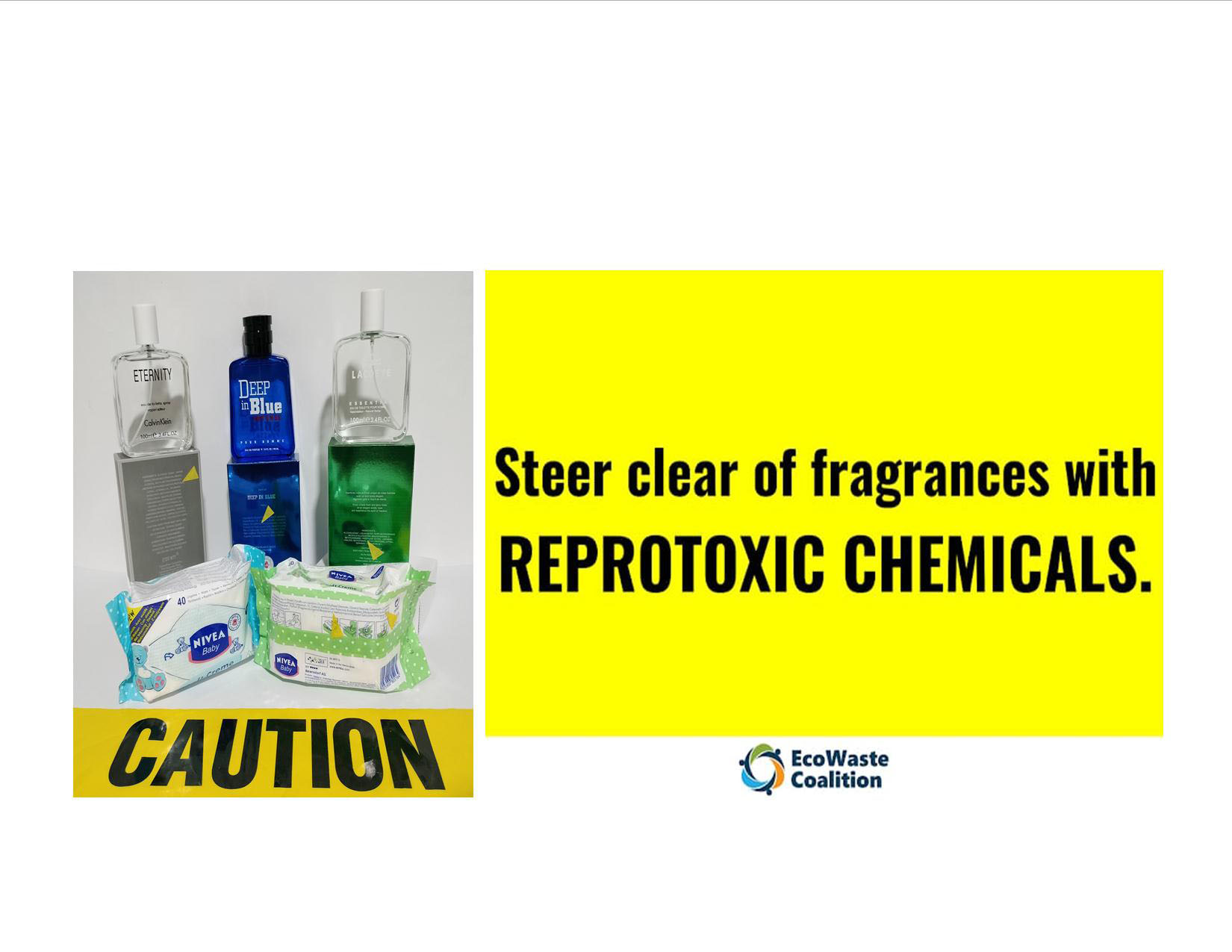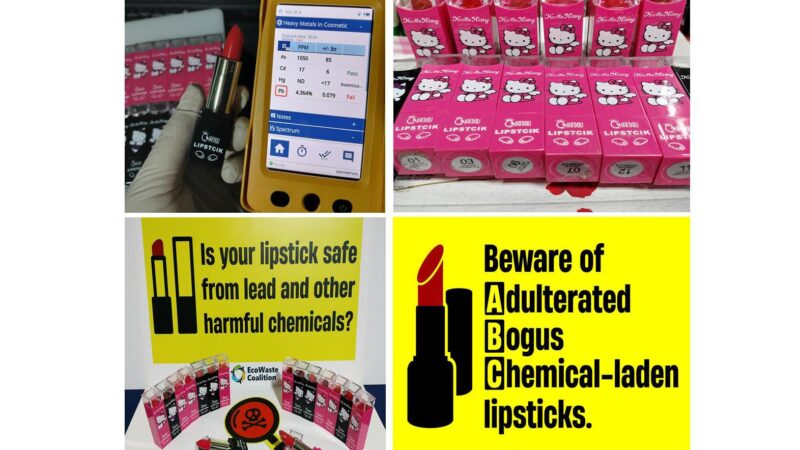EcoWaste Coalition Proposes Info Drive ahead of the Impending Ban on Fragrance Ingredient Known to Cause Reproductive Harm

1 November 2024, Quezon City. Ahead of the impending ban on a synthetic fragrance ingredient that is known to cause reproductive harm, the toxics watchdog group EcoWaste Coalition urged the Food and Drug Administration (FDA) to conduct an information campaign to promote public awareness and business compliance.
Following a grace period of 24 months, cosmetics containing 2-(4-tert-butylbenzyl) propionaldehyde or p-BMHCA shall be withdrawn from the market effective November 21, 2024, as decided at the 36th ASEAN Cosmetic Committee (ACC) Meeting held in 2022.
Also known as butylphenyl methylpropional, lilial, lily aldehyde, or lysmeral, p-BMHCA is extensively used as an ingredient in aftershave, cologne, eau de toilette, eau de parfum, and perfumes.
As stated in FDA Circular 2023-007 disseminating agreements reached at the 36th ACC Meeting, only compliant products shall be made available effective November 21, 2024, and non-compliant products shall be withdrawn from the market.
To check on the availability of cosmetic products containing p-BMHCA, the EcoWaste Coalition conducted a limited market investigation last month and found two eau de toilette (Eternity and Lacoste) and one eau de parfum (Deep in Blue) with p-BMHCA being sold for just P85 per 100 ml bottle at 999 Shopping Mall in Binondo, Manila. The group’s previous test buys in February 2023 netted 32 fragrance products with p-BMHCA.
Also, the group procured in Quiapo, Manila counterfeit baby wipes (Nivea Baby Soft-Crème) with butylphenyl methylpropional listed among its ingredients (the product also contains isobutyl paraben, a banned ingredient in cosmetics since 2016). An imitation of Nivea Baby Soft & Cream, this product has been banned by the FDA through Advisory No. 2018-273.
“As we have barely scraped the surface, there’s a big possibility that other cosmetic products containing p-BMHCA are still in the market and may not be taken off the store shelves before the November 21 deadline without a strong regulatory push,” said Aileen Lucero, National Coordinator, EcoWaste Coalition.
“We urge the FDA to conduct an information drive that will inform consumers and drive business establishments to comply,” she suggested.
“To avoid reproductive harm, we advise consumers to examine product labels carefully and avoid cosmetics listing p-BMHCA, butylphenyl methylpropional, lilial, lily aldehyde or lysmeral as ingredients,” she added. “Better be safe than sorry.”
For those who have already purchased cosmetics with p-BMHCA, the group urged consumers to discontinue further use of such products.
Classified by the European Union (EU) as “reprotoxic,” p-BMHCA presents a serious threat to the fertility of women and men and causes harm to the reproductive process. According to the EU, it is “harmful to the reproductive system, affecting fertility and posing risk to an unborn child’s health.” It is further connected with allergies contact dermatitis, and endocrine disruption.
The ban on p-BMHCA in cosmetic products took effect in the EU in March 2022.
Aside from fragrance products, p-BMHCA may also be found in body oil; deodorant cream, roll-on, spray, and stick; facial cream; hair and body wash; hair gel, mousse, spray, and styling foam; hand and nail cream; lotion; moisturizing cream; shampoo and conditioner; skin tonic; soap; and sunscreen products and more. (PR)
Reference:
https://www.fda.gov.ph/wp-content/uploads/2023/04/FDA-Circular-No.2023-007.pdf
https://www.fda.gov.ph/wp-content/uploads/2022/05/FDA-Advisory-No.-2017-278.pdf
https://echa.europa.eu/substance-information/-/substanceinfo/100.001.173







